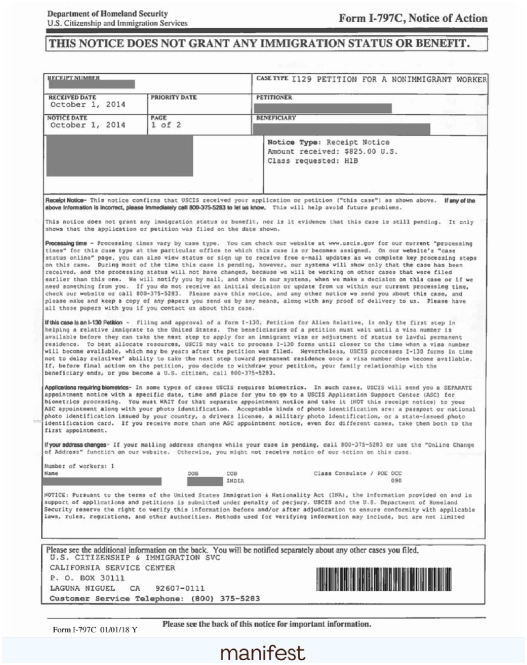A single piece of paper—Form I-797C, Notice of Action—may be the most overlooked legal safeguard for undocumented immigrants currently facing heightened immigration enforcement across the United States.
Though not a work permit or visa, the I-797C serves as official proof that a petition or immigration application has been received and is pending before U.S. Citizenship and Immigration Services (USCIS).
Legal advocates are now heightening the document’s growing importance, especially as Immigration and Customs Enforcement (ICE) detention centers reach capacity and enforcement resources become increasingly strained.
“It confirms that your case is pending even if you haven’t received a final decision yet, and right now that matters more than ever,” said one immigration attorney.
Some advocates say the document has already spared some clients from immediate detention.

A Buffer Against Arrest
Issued to applicants shortly after submitting forms such as asylum applications, U visas, or adjustment of status petitions, the I-797C does not grant legal status. However, it demonstrates that the individual is engaged in a formal immigration process—a critical distinction when interacting with ICE officers.
ICE guidelines allow agents to exercise discretion, particularly when an individual can prove a pending application. In these cases, presenting an I-797C form has led to ICE officers opting not to detain individuals on the spot.
Why It Matters Now
The timing is key. ICE facilities are currently overburdened, and the agency is facing budget shortfalls. With enforcement priorities increasingly focused on individuals with criminal records or recent border crossings, the I-797C could serve as a de facto triage tool—providing low-priority individuals a chance to avoid unnecessary detention.
Legal Experts Urge Preparedness
Immigration attorneys are encouraging clients without lawful status but with pending cases to carry a copy of their I-797C at all times. While the form does not guarantee immunity from arrest, it signals cooperation with immigration laws and may weigh heavily in an ICE officer’s discretionary decision.
“A pending case could protect you,” said immigration law expert Akua O. Aboagye. “In critical moments like this, something is better than nothing.”
As immigration enforcement intensify under President Donald Trump, this simple notice—often overlooked after it arrives in the mail—could become one of the most powerful tools undocumented immigrants have at their disposal.

